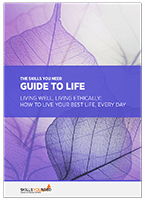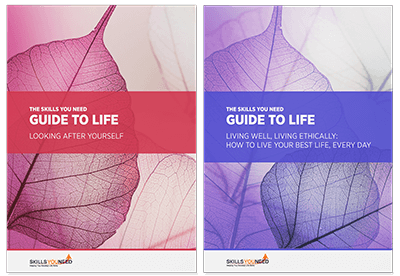Justice and Fairness
See also: FriendlinessThe concept of justice runs deep in most of us. You have only to hear a child’s cry of ‘It’s not fair!’ to understand that.
What do we actually mean by justice? Perhaps more importantly, how can you develop a strong sense of justice?
Research shows that, for most of us, fairness is a relative term. In other words, it’s not so much whether we are getting what we deserve, but whether we get what we deserve when compared with others.
Given that most of us would probably admit to feeling that we may be more deserving than is actually the case, this perhaps makes it even more important to consider how justice and ‘goodness’ fit together.
The Fit Between Justice and Goodness
Those who have developed a ‘good’ sense of justice tend to:
Want the right sort of things, to the right degree;
Want their ‘fair share’ of goods, so that they get what they deserve; and
Want others to get their fair share of what they need to lead a ‘good’ life.
In other words, such people have a strong sense of what they and others really deserve—and what they need to lead a ‘good’ life. Justice relates to the concept of treating others well.
Your ‘just deserts’, or a pre-emptive strike?
In Charles Kingsley’s The Water Babies, the hero Tom encounters two characters who could be said to embody justice. The first is Mrs Bedonebyasyoudid, who treats people in a way that reflects the way that they have treated others, and who is frankly quite scary. The second is Mrs Doasyouwouldbedoneby, who is beautiful, kind and loved by everyone who meets her.
Which one reflects the way that you see justice and how you behave to others?
Why Justice?
Justice, quite simply, forms the foundation of a civilised society.
Societies without just laws tend to be harsh and intolerant, often leading to conflict. We hold up the rule of law and the ideal of justice as being blind to social status, wealth or anything else.
In the Western world, we say that everyone has the right to ‘a fair trial’. We may or may not entirely believe that on a personal level, but we probably all understand that the principle is crucial.
The principle of justice has also led to some of the great changes in social issues in the last two or three centuries. Think, for example, of the emancipation of women, the downfall of apartheid in South Africa, or the civil rights movement in the USA. All, for the most part, were driven by a strong sense of unfairness among first a few, and then many more, and not just among the disenfranchised groups concerned.
The Reverse of Justice
Aristotle described ‘poetic justice’ as being “pain felt at either good or bad fortune if undeserved, or to joy felt at them if deserved”.
In other words, justice is feeling good and bad at appropriate moments. But it is also possible to feel these feelings at the wrong time.
Envy is feeling pain at someone’s well-deserved good fortune.
If you find yourself unable to congratulate a colleague on their promotion, even though you know that they deserved it, you could well be suffering from envy. Envy can also be taking pleasure in something bad that happens to someone else through no fault of their own.
Spite, like envy, is a feeling that sometimes happens when we see someone with something that we think we should have, whether that is a promotion, money or a big house. In general, envy is about wanting something that someone else has got, and spite is about not wanting them to have it.
Neither spite or envy are pleasant things to either feel or to encounter in another.
Assessing your Sense of Fairness
To make an assessment of your sense of fairness, ask yourself a series of questions:
Do I want the things that will help me to live a ‘good’ life (that is, a life that I will look back on with pride and not with regret)?
Do I have more or less than my fair share of the good things in life?
Do I want to see a fair distribution of goods in the world, and do I dislike seeing unfairness in the way that things are distributed? For example, do you find it difficult to justify the differences between the developed and developing world and feel slightly uncomfortable when you think about poverty?
How difficult do I find it to see others having good luck? Ask yourself how you would feel if your partner or sibling won the lottery, and whether you would feel delighted for them, or envious. How do you show your feelings towards others’ undeserved good luck?
How much pleasure do I take in others’ bad luck?
Justice, Envy and Spite
Justice takes pleasure in others getting ‘what they deserve’. In other words, it is pleased when people who have done good things get rewarded, or ‘bad’ people get their comeuppance, and sorrow if ‘bad’ people seem to do well, or good people suffer.
Envy, on the other hand, is pained when anyone has any good fortune, whether deserved or not.
Spite is pleased when anything bad happens to someone else, again whether deserved or not.
Ensuring Justice
When you find yourself in a situation where you think you may need to exercise justice or fairness, there are some questions you can use to help.
These are:
What do I think those involved deserve? Why?
If the situation requires some distribution of goods, how could I ensure a fair distribution of the goods and/or services involved? How can I be sure that equal value will be placed on what is received?
If the situation involves some injustice, what can I do to put that right? Will what I do restore something to the loser, and punish the wrong-doer? If not, should I do something else instead or as well?
Further Reading from Skills You Need
The Skills You Need Guide to Life
This two-part guide is an easy-to-read summary of the essential skills you need for a healthy mind and body.
The first eBook, Looking After Yourself, covers some of our most popular content and will help you to live a happier, healthier and more productive life.
The second eBook, Living Well, Living Ethically, considers how you can live your best life all the time. It helps you to answer the question: how can I avoid having too many regrets about my life?
Finding the Balance
It is important to find a balance for your personal feelings and sense of fairness and justice.
Pain at others’ good fortune turns to envy, and rejoicing in bad luck is spiteful. If you find that you tend towards those extremes, try hard to rejoice or commiserate genuinely with others instead. Sometimes the word can become the deed, and you may even find that your feelings change too!
One last thought… when you believe that you may have been treated unfairly, perhaps it is worth asking yourself whether others would see it in the same light before you react.
The world can seem a very different place when seen from another perspective.


